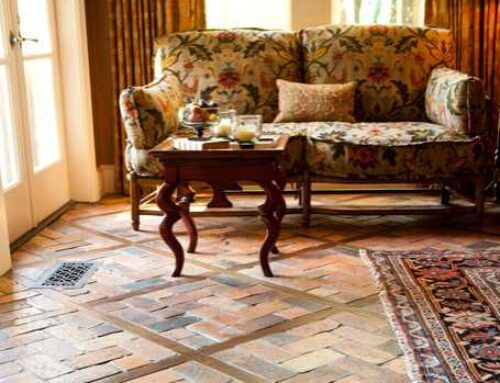What sets brick pavers apart from other materials is the many great designs and top notch durability.When it comes to appearance, few can match the number of colors, shapes, textures, and sizes available with brick pavers. And when it comes to durability, a brick paver structure is less susceptible to cracking, is able to take on heavy loads, and withstand severe weather conditions far better than wood or concrete.
However, brick pavers are still not maintenance free. While they require much less upkeep than the alternatives, it’s still a good idea to follow the maintenance schedule your hardscape contractor suggests.
Maintenance generally involves two things: pressure washing and sealing. These two activities will keep your brick pavers looking vibrant and will help them last longer as well.
When Is Maintenance Needed?
Maintenance is essential to keep brick pavers in good condition and you don’t even need to do it that often. About once a year is enough to keep your pavers looking great.
Of course, you’re also free to call a brick paver specialist to come over to do a maintenance run whenever you wish. If you notice that the surface is looking dirty or if there are stains that just won’t go away, a brick paver contractor can help get it back in shape.
Pressure Washing
Pressure washing is the most efficient way to clean brick pavers. It can be used on almost any type of surface without causing any damage. Unlike using a brush that can lead to scratches, a pressure washer uses a high-pressure water spray to clean off dirt and stains. Even grime that has been built up over years is no match for pressure washing.
A pressure washer comes with different tips that will affect how the water comes out. There is an appropriate one for different kinds of stains and surfaces and they’re used so that the material underneath is not damaged. Chemicals can also be included along with the water coming out of the spray to help with the cleaning. The water can even be heated which not only makes stain removal easier, but also kills bacteria on the surface of the brick pavers.
Sealing
Cleaning alone is not enough as the pavers are still exposed to the things that can make them dirty again. The next step is to apply a sealer. This will help the brick pavers retain its newly-cleaned look. A coat of sealant will also prevent dirt, oil, and grease from being absorbed by the bricks.
Think of the sealant as a protective layer on top of the brick pavers. It stops debris from damaging the brick pavers and causing stains. Sealing the pavers will also prevent color loss over time and make the pavers better able to withstand different weather conditions.

